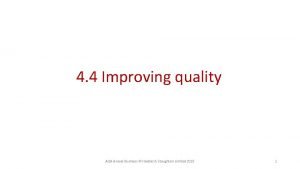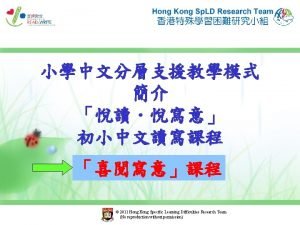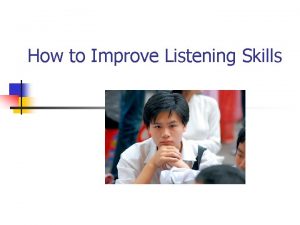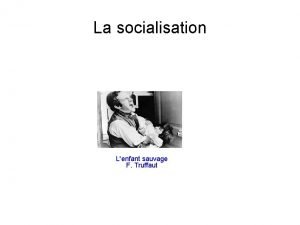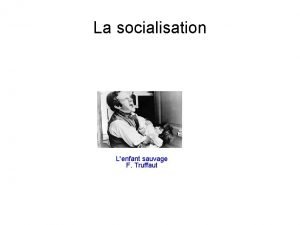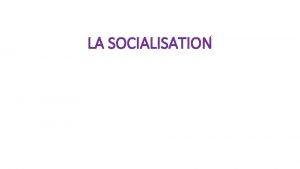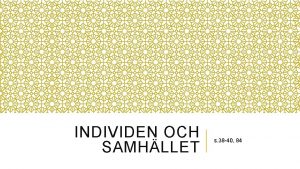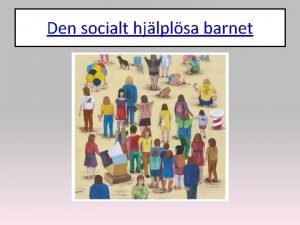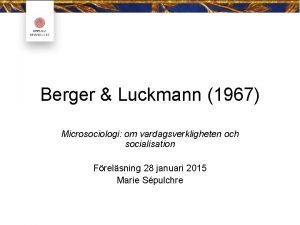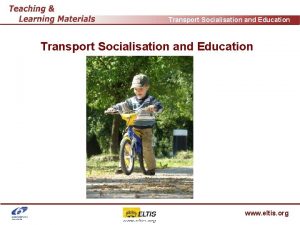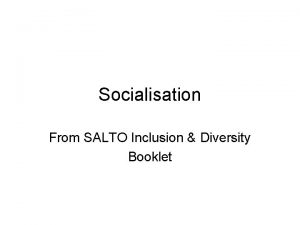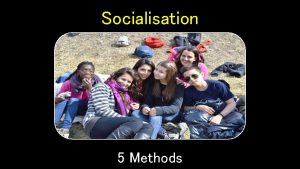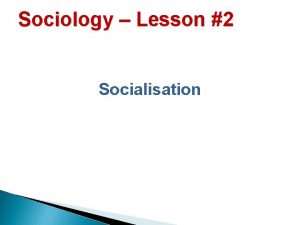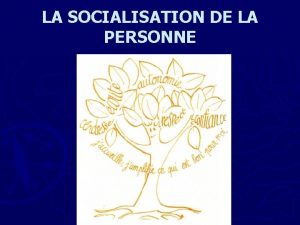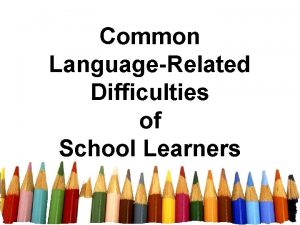Language socialisation of children with communication difficulties in














- Slides: 14

Language socialisation of children with communication difficulties in multilingual families Jane Stokes: University of Greenwich and Deirdre Martin: University of Birmingham

The space we are in Building a knowledge ‘object’ n Our intellectual journeys: histories and personal - professional narratives n What is meant by ‘knowledge object’?

Building this new knowledge object Needs and challenges in different communities NEEDS n of academic community: limited research in communication difficulties in multilingual families n of service provider community of health, education and social care providers : SLTs, health visitors, educators, ed. psychologists n of user-client group: bilingual/multilingual families with children who have communication difficulties

Challenges n Challenges for academic community n Challenges for service providers n Challenges for bilingual families with children with communication difficulties

Scientific and spontaneous concepts Concept Scientific concepts • Impose on child logically defined concepts • Scientific concepts move ‘downwards’ towards greater concreteness • Evolve in highly structured and specialized activity of classroom instruction Mature concepts Spontaneous Concepts Object • Concepts emerge from the child’s own reflections of everyday experience • Spontaneous concepts move upwards towards greater abstractness • Develops in child’s everyday learning environment

Crossing boundaries Dissatisfaction between the traditional separation between language acquisition and language socialisation (Kramsch 2002) Language acquisition: learner as computer Language socialisation: learner as apprentice

Language acquisition Key concepts of this perspective through metaphors of language development n Acquisition metaphor n Participation metaphor n Co-construction metaphor

Metaphors for culture Culture as ‘medium’; as a nurturing garden Cole (1996) Cultural psychology and Cross-cultural psychology

Vinden and Astington (2000) “There is a danger that those who focus on biological [including cognitive] explanations and those who focus on cultural ones cannot even talk to one another because they are grappling with essentially different issues. We hope we are not talking past [other presenters here] but rather initiating a crossing of borders that will eventually lead to the kind of co-operation and transformation that we see as crucial to advancing our understanding”

Language socialisation Key concepts of this perspective

Ochs 2002 “ the marriage between culture and developmental research is uncertain. While culture is considered important to fathom, it is obscure and difficult to analyze. Culture, like God, seems unknowable. Central to understanding the relation of language and culture in human development is long term, rigorous ethnographic observation, recording, description, and analysis of displayed preferences and social actions, and their historical and ontogenetic enduring and changing relation to social identities and activities. Without this ethnographic knowledge, it is difficult to grasp the realms of social meaning that novice and veteran members of communities are building when they interact, and the sociocultural fissure points that land them in tangled webs of miscommunication”

Van Kleeck 1994 “We have come to realise. . that language use is essentially a cultural phenomenon, both reflecting and transmitting deeply held cultural values and beliefs. If we are to provide increasingly efficacious services to all families we serve, we must grapple openly with the infinitely complex issues presented by the cultural diversity of the clients we serve” Van Kleeck A (1994) Potential cultural bias in training parents as conversational partners with their children who have delays in language development American Speech-Language-Hearing Association

Communication as culture Key concepts of culture and language socialisation of communication needs in multilingual families n Communication difficulties as cultural difficulties n Autism and culture

Some questions to shape a knowledge object and our thoughts How is the family collective building communication practices with and around the child? What is the ecology of the family and the tension with individuality? What are constellation of behaviours within families and cultures? How do we build a new knowledge object to bridge the traditional separation between language acquisition and language socialisation?
 Difficulties of improving quality
Difficulties of improving quality Specific learning difficulties 中文
Specific learning difficulties 中文 The interactivity (structure) chart is developed by
The interactivity (structure) chart is developed by What are the difficulties in listening
What are the difficulties in listening Financial difficulties are commonly caused by overspending
Financial difficulties are commonly caused by overspending Socialisation agencies
Socialisation agencies Instance de socialisation
Instance de socialisation Socialisation différenciée
Socialisation différenciée Les objectifs de la socialisation
Les objectifs de la socialisation Which magazine
Which magazine Socialisation
Socialisation Types of socialisation
Types of socialisation Berger luckmann socialisation
Berger luckmann socialisation Lifelong process of social interaction
Lifelong process of social interaction Socialisation
Socialisation
